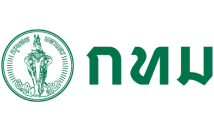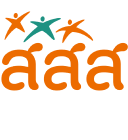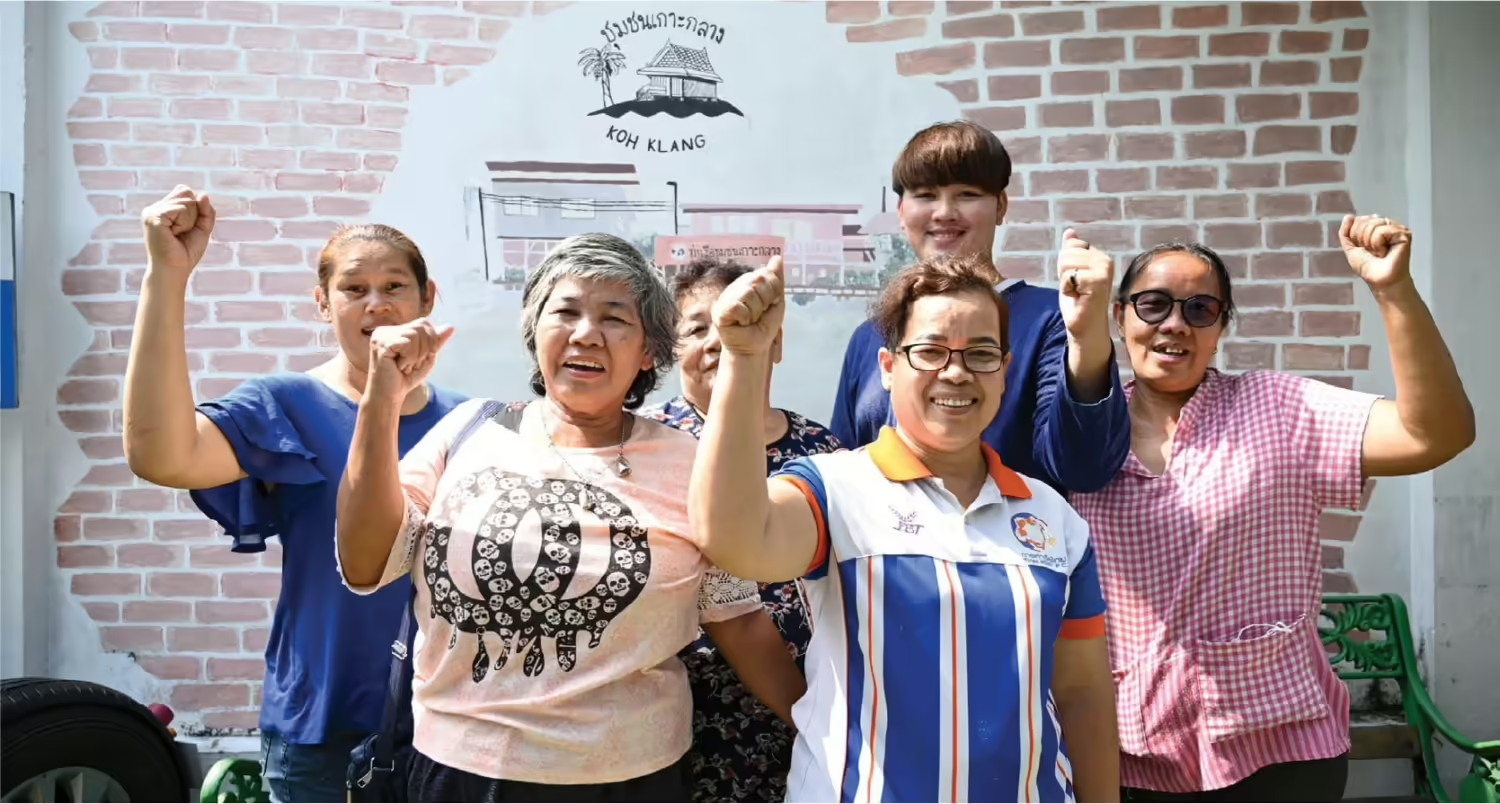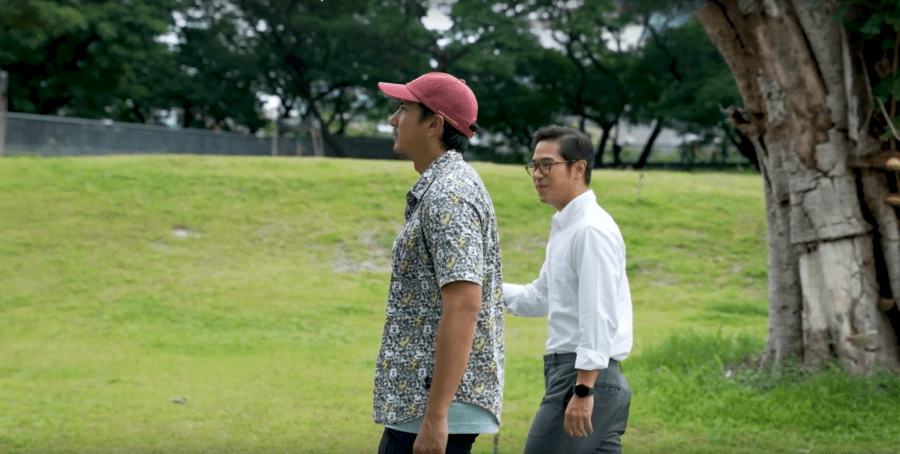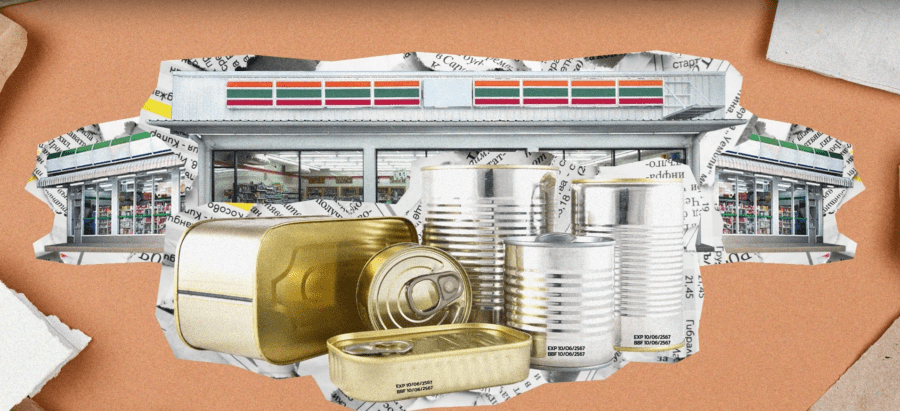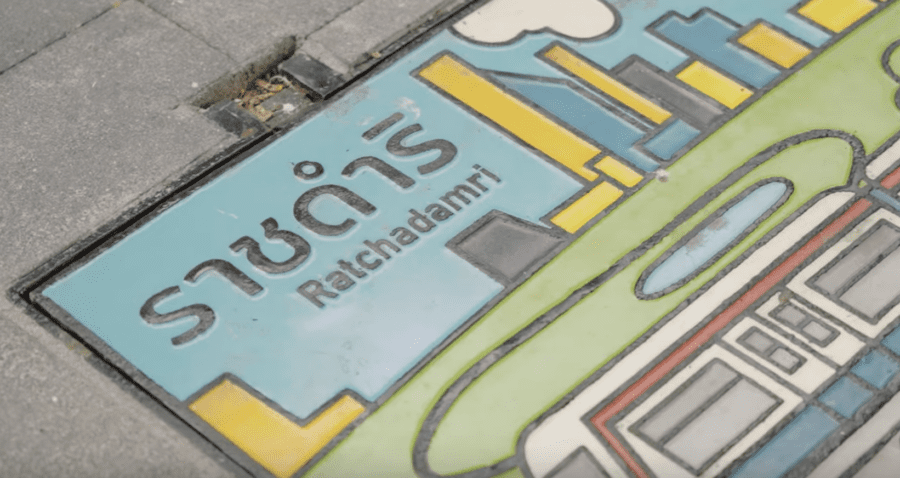In one day, Bangkok can create more than 9,000 tons of waste, which requires a large budget for waste disposal, almost 9 billion baht per year. But if the amount of waste can be reduced, the problem of waste disposal will also be reduced. Bangkok has continuously promoted the waste separation project from the beginning. One of the communities that has cooperated with the project until there has been an admirable change for the better is the "Chon Ko Klang Community".
Central Island Community
A small canal-side community in the heart of the city that is over 100 years old, located in Khlong Toei District, Bangkok, has only 56 households, with a population of around 230 people. Previously, the image of a canal-side community in the middle of the city was often seen as deteriorated and a place for dumping waste into rivers and canals. However, with the good intentions of the people in the community, along with support and knowledge on proper waste management from the Dow Thailand Group, this image has changed completely.
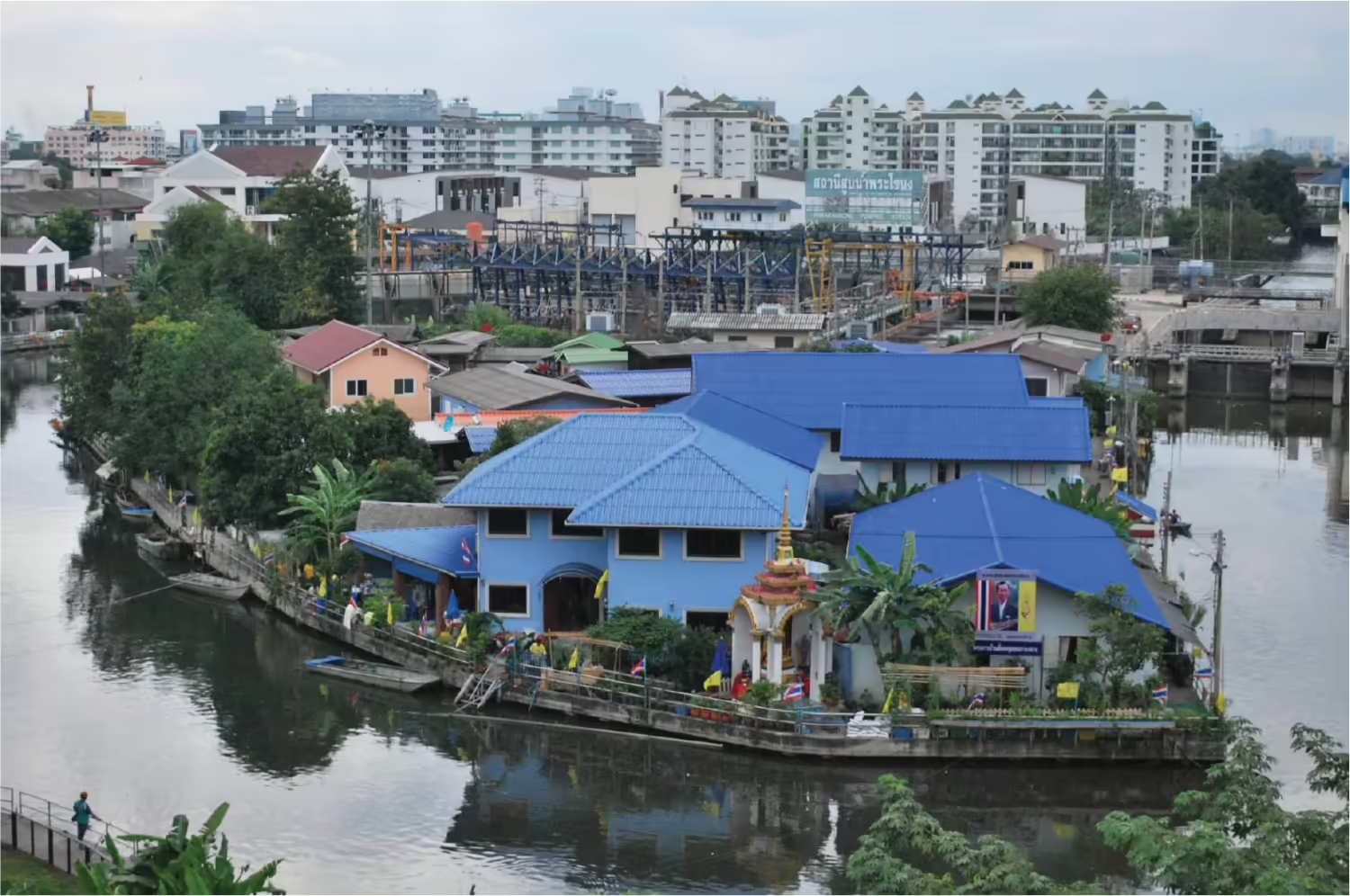
Results of cooperation
The Koh Klang community has improved the usable area to have beautiful scenery. There is a systematic waste separation point. Products from waste, such as biogas, can be used to cook food in the community for up to 720 hours, saving about 9,600 baht per year in energy costs. In addition, many types of low-value waste have been developed into products, which benefit the community in terms of waste management, cleanliness, product utilization, increased income, and cost savings. It also creates awareness of using resources efficiently, so it can be a learning center for other communities (Nikorn SSO, 2023), which is called the "Koh Klang Integrated Waste Management Model Learning Center: A Community That Separates Waste and Benefits".
Save costs and increase income
107,400
Baht per year
Reduce greenhouse gas emissions
14,610
kgCO2eq
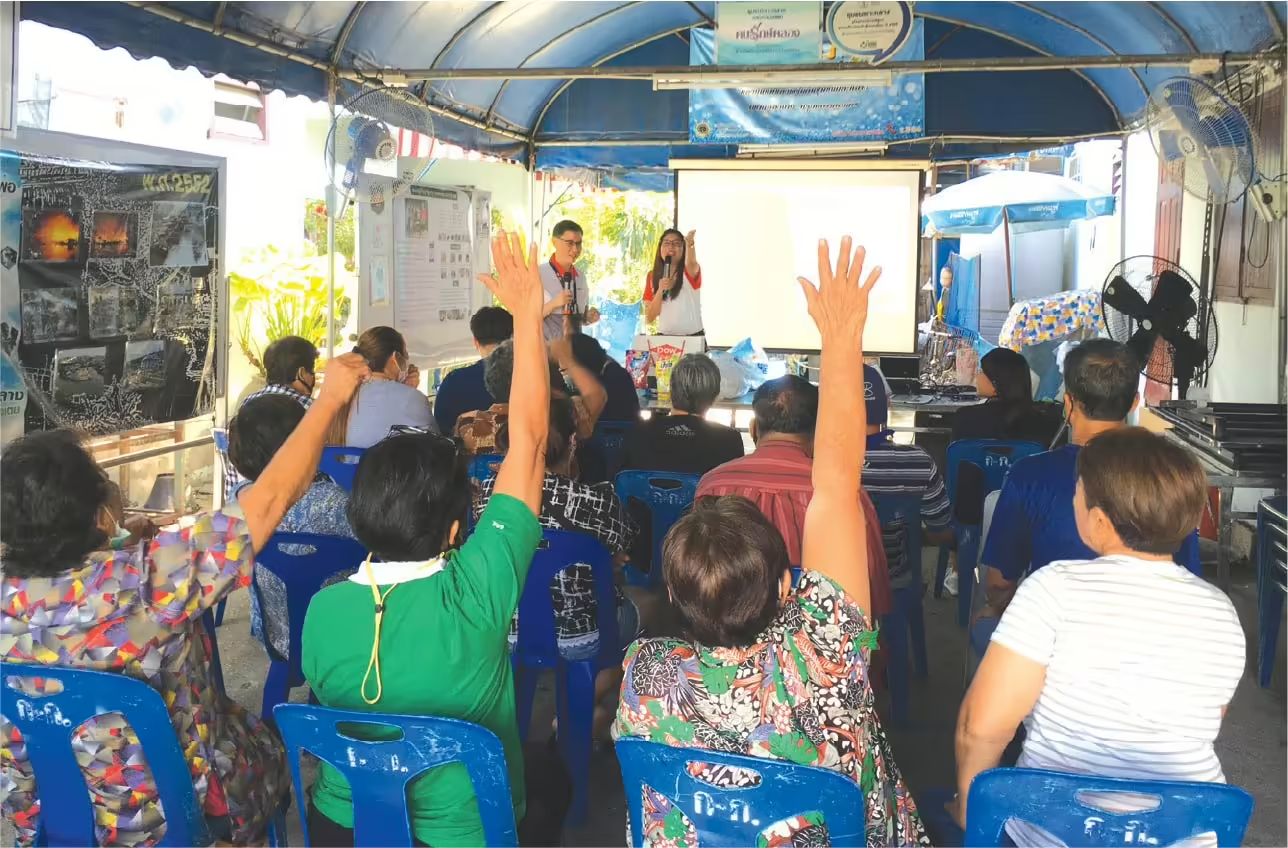
Changes in the Island Community
From having no knowledge, many people have now become lecturers. Each family has participated in being a model home for waste management. In addition, the behavior of the community has changed, making waste separation more efficient. To the point of having a waste purchasing facility within the community to separate and sell it. At the same time, when the community members go out of the community, they still bring back trash because they realize that it is valuable and can be sold to circulate and be used again, and generate income for them.
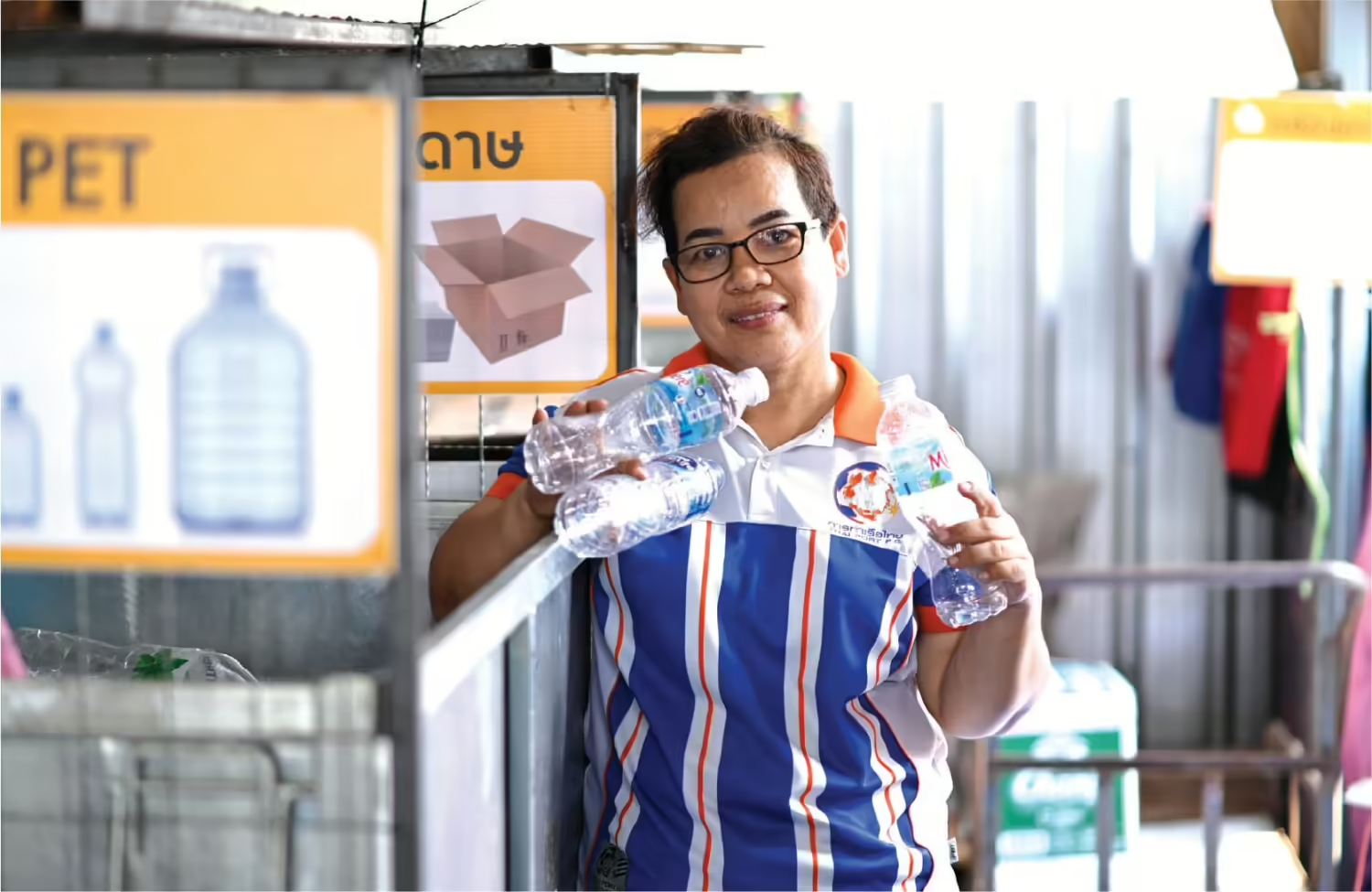
From small beginnings, it will blossom into greatness.
The success of a small community like Koh Klang Community will be an important starting point for larger communities to pay more attention to waste separation because this tangible success can truly build confidence for other communities to know. Ultimately, when Bangkok's waste problem is reduced, this budget can be allocated to promote education for underprivileged children or promote good welfare for the people, as well as effectively develop public utility areas for Bangkok.
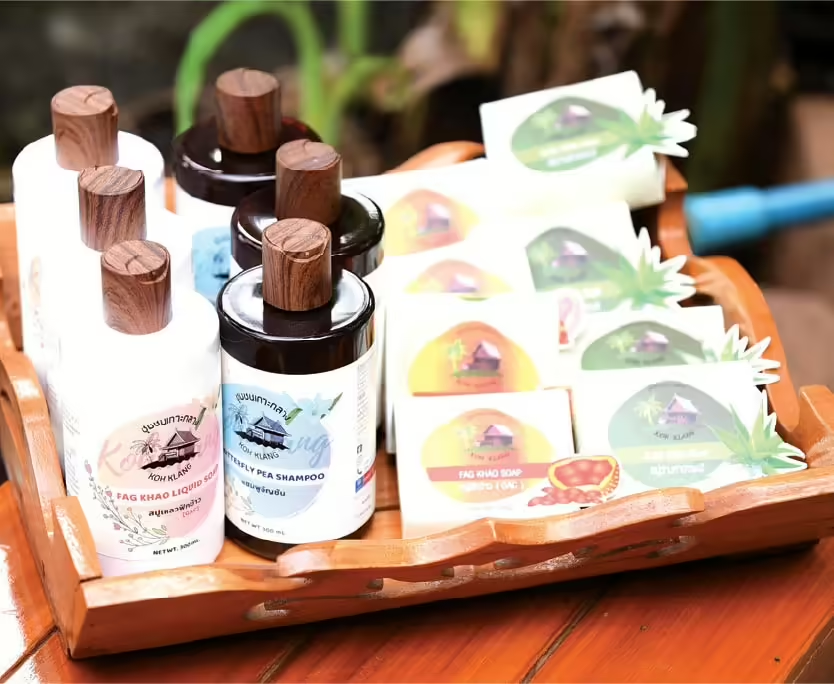
Integrated waste management for the Koh Klang community
- Separate waste into 4 types Including organic waste, general waste, recyclable waste and hazardous waste.
- Sorting recyclable materials (Glass, paper, plastic, cans and beverage boxes) can be donated to a recycling donation point or sold to a recycling sorting center.
- Forwarding stretchable plastic wasteSuch as shopping bags, curry bags, film and product wraps, etc. to buyers of recycled materials, allowing plastic waste to enter the recycling process with full efficiency once again.
- Convert general waste into various products For household use and income generation, such as bags, baskets, flowers, etc.
- Take organic waste or food waste from households.Fermentation to produce biogasFor use as household cooking gas, another part is used to make fertilizer for plants, while the waste oil can be used to make dishwashing soap.
- Set up a waste collection point in the community once a month. Along with using the OK Recycle application to collect data on waste trading within the community that can be viewed transparently, where waste prices will rise and fall according to market demand.
- The community will forward the remaining waste and hazardous waste that cannot be used to benefit the community to the Khlong Toei District Office for management.
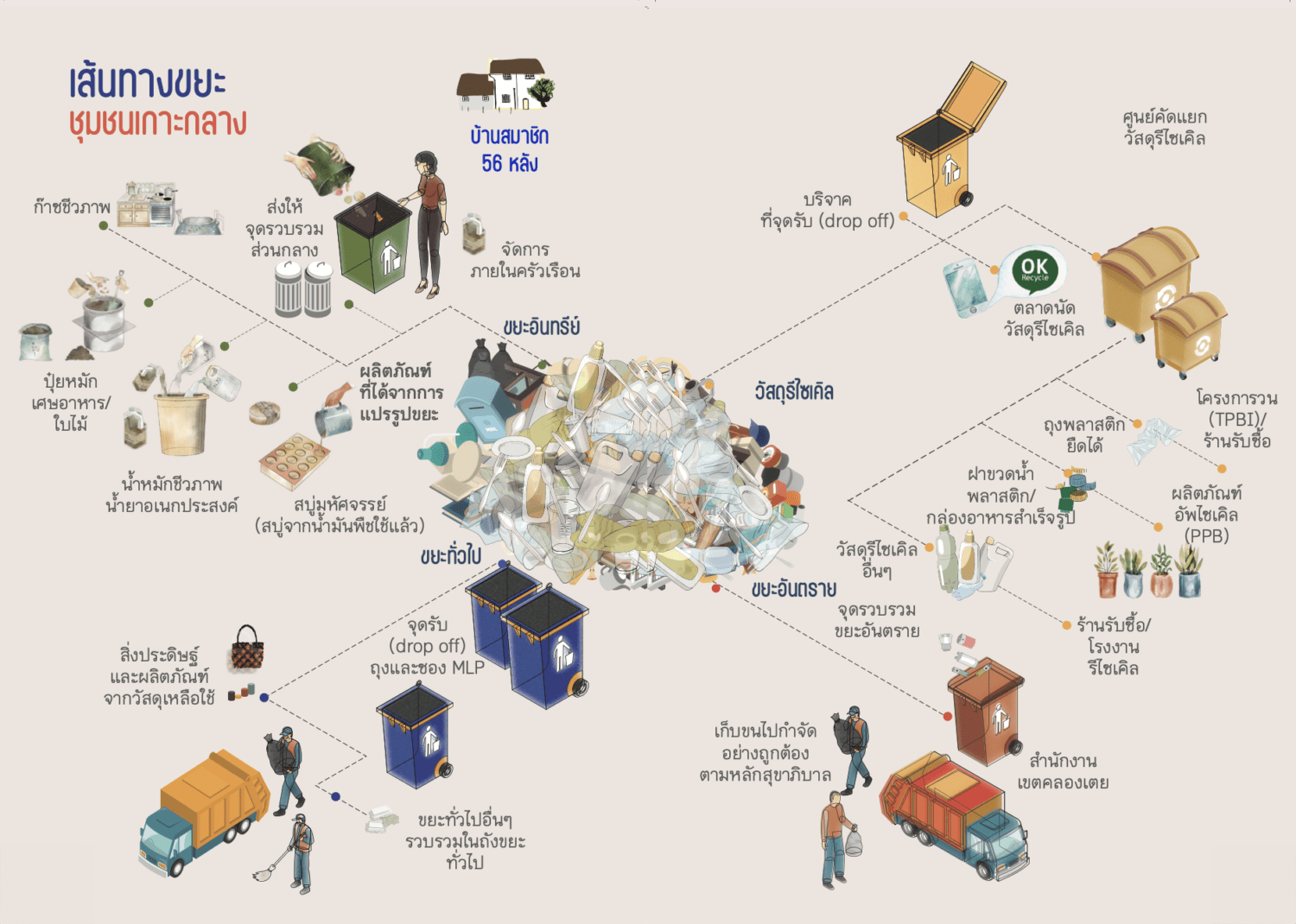
Lessons from the Central Island Community
- Community participation and determination, along with proper knowledge, are essential to create a good foundation for waste separation in the community.
- The integrated waste management in the central island, including organic waste, general waste, recyclable waste and hazardous waste, has promoted sustainable development in the social, economic and environmental aspects, resulting in a model for sustainable waste management businesses in communities.
Reference list
- Illustration from the island in the middle of the community separating waste to create benefits, extracting lessons from integrated waste management, the Institute for Packaging and Recycling Management for the Environment, FTI.
- Nikorn S.P.S., (2023), Open House, Central Island, a model community for managing and making use of waste in a complete cycle
- Dow Neighbor, (2022), Koh Klang Community, a model community for waste separation in Khlong Phra Khanong
- Mink Rujirat, (2020). The “Koh Klang” community and its integrated waste management in a limited area and landscape amidst an urban society
- Research world Thailand, (2020). Dow joins hands with Bangkok to promote a model community in the middle of the island to manage waste in an integrated manner, distributing free books on lessons learned, aiming to expand the results to other communities.
- DOW family Thailand. (2020). Lessons learned from integrated waste management in the middle of a community that separates waste to create benefits. First printing.
Article by Natthanon Nakkhong
